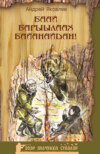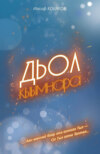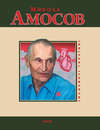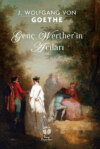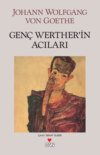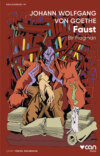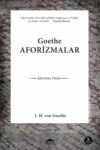Kitabı oku: «German Fiction», sayfa 14
THE RIDER ON THE WHITE HORSE
BY
THEODOR STORM
TRANSLATED BY
MARGARETE MÜNSTERBERG
BIOGRAPHICAL NOTE
Hans Theodor Woldsen Storm, usually known as Theodor Storm, was born in the small coast town of Husum in Schleswig-Holstein on September 14, 1817. His father was an attorney whose family had for generations been tenants of the old mill in Westermühler, and his mother's family were of the local aristocracy. Influences from his ancestry on both sides and from the country in which he was brought up played an important part in the formation of his sentiments and character.
Storm was educated at schools in Husum and Lübeck, and studied law at Kiel and Berlin. At Kiel he formed a friendship with the historian Theodor Mommsen and his brother Tycho, and the three published together in 1843 "Songs by Three Friends." In spite of his interest in literature, Storm went on with his legal career, and began practice in his native town. There in 1846 he married his cousin Konstanze Esmarch, and settled down to a happy domestic life.
When Storm was born, Schleswig and Holstein were independent duchies, ruled by the king of Denmark; but when they were forcibly incorporated into the kingdom of Denmark, Storm, who was a strong German in sentiment, felt forced to leave his home, and in 1853 became assistant judge in the circuit court in Potsdam. The bureaucratic society of the Prussian town was uncongenial, and three years later he was glad to be transferred to Heiligenstadt in Thuringia. In 1864 Schleswig-Holstein was conquered by Prussia, and though Storm was disappointed that it did not regain its independence, it was at least once more German, and he returned to Husum as "Landvogt," or district magistrate, in 1865, and lived there till 1880. The last eight years of his life he spent at a country house in the neighboring village of Hademarschen, where he died July 4, 1888. Konstanze had died in 1865, and he married as his second wife Dorothea Jensen. Both marriages brought him much happiness.
Storm began his literary career as a lyric poet, and his work in this field gives him a high place among the best in a kind in which German literature is very rich. His story writing began with "Immensee" (1849), perhaps his best known work. His early prose shared some of the quality of his poetry in that it sought rather to convey a mood than describe action; but, as his talent matured, incident and character stood out more and more distinctly.
The progress can be traced from "Immensee" through "At the Castle" and "At the University" to the objective narrative of "In the Village on the Heath" and "At Cousin Christian's." In "Eekenhof" and "Hans and Heinz Kirsch" he is frankly realistic, and the complete evolution from his early subjectivity is seen in the dramatic depicting of human struggles in "The Sons of the Senator," "Renate," and, last and greatest of his works, "The Rider on the White Horse."
In this masterpiece, Storm exhibits a man's will in conflict, on one side, with unintelligent conservatism among his fellowmen and, on the other, with the forces of nature. The figure of the dike-master emerges from the double struggle with a fine impressiveness; and the tragedy which finally engulfs him and his family is profoundly moving. At the same time we are given a vivid picture of the landscape of the low-lying coast of the North Sea, with the ever-present menace of the flood tide; and the sternness of the action is tempered with glimpses of humor and a picture of warm affection. Here Storm's art reached a pitch which places him beside the masters of the short novel.
W. A. N.
CRITICISM AND INTERPRETATION
By Adolf Stern
Within his special North German world, Storm's view extends back through the decades and centuries. It reaches also, from the humblest classes of the people, whose solidity and peculiar virtues he understands as well as anyone, up to the circles of the most liberal and profound culture. But the class that stands out most conspicuously is the bourgeoisie, with their moderate means and their traditional eagerness to assure to their children circumstances as good as their own or better; among them his novels are usually laid; and among them he finds his richest and most original characters. All these people are deeply rooted in the soil of the family, of the home in the narrower sense; with all of them the memories of childhood, the earliest surroundings, play a more important part than would be the case with people of the same type of mind and the same social position from another region. With all of them a conservative element is predominant, which makes itself felt in all their doings, their way of seeing things, their habits. Men and women appear to be in the peculiar bondage of a convention more formal than severe; they seem possessed by a feeling of responsibility towards a conception of life which dominates them, a conception which does not, to be sure, exclude free will, a noble passion or warm affection, but which recognizes such and admits them to their world only under special conditions, watchfully, carefully, and with reserve. They are more dependent on the opinion of their environment than the more careless and indifferent children of other stocks. But though all the characters which Storm likes to portray are wonderfully and apparently inextricably overgrown with tradition and custom, yet they are, on the other hand, strong individualities, independent to the point of stubbornness, and fully conscious of their right to their own inner life. In these natures so honestly sober, testing and weighing so sensibly, living in such well-established order, there reigns secretly a powerful imagination, a longing and a determination to win, each for himself, a piece of life after his heart's desire. They are all ready under certain circumstances to enter into the sharpest conflict, even into the most irreconcilable struggle with all the conventions, as soon as they feel their inmost being seized by such a yearning. They have little inclination to yield to their imaginations in the things of everyday life, or to urge their desires beyond the usual. But sometimes in decisive moments they are carried away, they become conscious of the ardor and at the same time of the strength of their hearts, for once they must follow the call of their feelings which tells them they are free and have to work out their own salvation. It is among such natures that there is scope for the strong and deep passion of love, for that faithful affection that gives no outward sign-we stand on the shore whence rose the song of Gudrun in the gray days of old.
Of course, not every one of these peculiar and silent characters is victorious in the strife with the hard, stubborn, conventional world, nor does their struggle for their highest good always lead to a tragic ending. Storm's eye rests too serenely and securely on the object; he is an artist filled with too deep a sympathy with life to deceive himself sentimentally about the fatal chain of human destiny, about guilt and error, about the secret relation between weakness and its results in life, about the places in the way which we cannot pass. He is a better, even a keener, realist than many who call themselves by that name, and has looked deeper into the eye of Nature than those who imagine that their microscope has laid bare to them every eyelid of the eternal mother. – From "Studien zur Litteratur der Gegenwart" (1895).
THE RIDER ON THE WHITE HORSE
What I am about to tell I learned nearly half a century ago in the house of my great-grandmother, old Madame Fedderson, widow of the senator, while I was sitting beside her armchair, busy reading a magazine bound in blue pasteboard-I don't remember whether it was a copy of the "Leipzig" or of "Pappes Hamburger Lesefrüchte." I still remember with a shudder how meanwhile the light hand of the past eighty-year-old woman glided tenderly over the hair of her great-grandson. She herself and her time are buried long ago. In vain have I searched for that magazine, and therefore I am even less able to vouch for the truth of the statements in it than I am to defend them if anyone should question them; but of so much I can assure anyone, that since that time they have never been forgotten, even though no outer incident has revived them in my memory.
It was in the third decade of our century, on an October afternoon-thus began the story-teller of that time-that I rode through a mighty storm along a North Frisian dike. For over an hour I had on my left the dreary marshland, already deserted by all the cattle; on my right, unpleasantly near me, the swamping waters of the North Sea. I saw nothing, however, but the yellowish-grey waves that beat against the dike unceasingly, as if they were roaring with rage, and that now and then bespattered me and my horse with dirty foam; behind them I could see only chaotic dusk which did not let me tell sky and earth apart, for even the half moon which now stood in the sky was most of the time covered by wandering clouds. It was ice cold; my clammy hands could scarcely hold the reins, and I did not wonder that the croaking and cackling crows and gulls were always letting themselves be swept inland by the storm. Nightfall had begun, and already I could no longer discern the hoof of my horse with any certainty. I had met no human soul, heard nothing but the screaming of the birds when they almost grazed me and my faithful mare with their long wings, and the raging of the wind and water. I cannot deny that now and then I wished that I were in safe quarters.
It was the third day that this weather had lasted, and I had already allowed an especially dear relative to keep me longer than I should have done on his estate in one of the more northern districts. But to-day I could not stay longer. I had business in the city which was even now a few hours' ride to the south, and in spite of all the persuasions of my cousin and his kind wife, in spite of the Perinette and Grand Richard apples still to be tried, I had ridden away.
"Wait till you get to the sea," he had called after me from his house door. "You will turn back. Your room shall be kept for you."
And really, for a moment, when a black layer of clouds spread pitch-darkness round me and at the same time the howling squalls were trying to force me and my horse down from the dike, the thought shot through my head: "Don't be a fool! Turn back and stay with your friends in their warm nest." But then it occurred to me that the way back would be longer than the way to my destination; and so I trotted on, pulling the collar of my coat up over my ears.
But now something came toward me upon the dike; I heard nothing, but when the half moon shed its spare light, I believed that I could discern more and more clearly a dark figure, and soon, as it drew nearer, I saw that it sat on a horse, on a long-legged, haggard, white horse; a dark cloak was waving round its shoulders, and as it flew past me, two glowing eyes stared at me out of a pale face.
Who was that? What did that man want? And now it came to my mind that I had not heard the beating of hoofs or any panting of the horse; and yet horse and rider had ridden close by me!
Deep in thought over this I rode on, but I did not have much time to think, for straightway it flew past me again from behind; it seemed as if the flying cloak had grazed me, as if the apparition, just as it had done the first time, had rushed by me without a sound. Then I saw it farther and farther away from me, and suddenly it seemed as if a shadow were gliding down at the inland side of the dike.
Somewhat hesitating, I rode on behind. When I had reached that place, hard by the "Koog," the land won from the sea by damming it in, I saw water gleam from a great "Wehl," as they call the breaks made into the land by the storm floods which remain as small but deep pools.
In spite of the protecting dike, the water was remarkably calm; hence the rider could not have troubled it. Besides, I saw nothing more of him. Something else I saw now, however, which I greeted with pleasure: before me, from out of the "Koog," a multitude of little scattered lights were glimmering up to me; they seemed to come from some of the rambling Frisian houses that lay isolated on more or less high mounds. But close in front of me, half way up the inland side of the dike lay a great house of this kind. On the south side, to the right of the house door, I saw all the windows illumined, and beyond, I perceived people and imagined that I could hear them in spite of the storm. My horse had of himself walked down to the road along the dike which led me up to the door of the house. I could easily see that it was a tavern, for in front of the windows I spied the so-called "ricks," beams resting on two posts with great iron rings for hitching the cattle and horses that stopped there.
I tied my horse to one of these and left him to the servant who met me as I entered the hall.
"Is a meeting going on here?" I asked him, for now a noise of voices and clicking glasses rose clearly from the room beyond the door.
"Aye, something of the sort," the servant replied in Plattdeutsch, and later I learned that this dialect had been in full swing here, as well as the Frisian, for over a hundred years; "the dikemaster and the overseers and the other landholders! That's on account of the high water!"
When I entered, I saw about a dozen men sitting round a table that extended beneath the windows; a punch bowl stood upon it; and a particularly stately man seemed to dominate the party.
I bowed and asked if I might sit down with them, a favor which was readily granted.
"You had better keep watch here!" I said, turning to this man; "the weather outside is bad; there will be hard times for the dikes!"
"Surely," he replied, "but we here on the east side believe we are out of danger. Only over there on the other side it isn't safe; the dikes there are mostly made more after old patterns; our chief dike was made in the last century. We got chilly outside a while ago; and you," he added, "probably had the same experience. But we have to hold out a few hours longer here; we have reliable people outside, who report to us." And before I could give my order to the host, a steaming glass was pushed in front of me.
I soon found out that my pleasant neighbour was the dikemaster; we entered into conversation, and I began to tell him about my strange encounter on the dike. He grew attentive, and I noticed suddenly that all talk round about was silenced.
"The rider on the white horse," cried one of the company and a movement of fright stirred the others.
The dikemaster had risen.
"You don't need to be afraid," he spoke across the table, "that isn't meant for us only; in the year '17 it was meant for them too; may they be ready for the worst!"
Now a horror came over me.
"Pardon me!" I said. "What about this rider on the white horse?"
Apart from the others, behind the stove, a small, haggard man in a little worn black coat sat somewhat bent over; one of his shoulders seemed a little deformed. He had not taken part with a single word in the conversation of the others, but his eyes, fringed as they were with dark lashes, although the scanty hair on his head was grey, showed clearly that he was not sitting there to sleep.
Toward him the dikemaster pointed:
"Our schoolmaster," he said, raising his voice, "will be the one among us who can tell you that best-to be sure, only in his way, and not quite as accurately as my old housekeeper at home, Antje Vollmans, would manage to tell it."
"You are joking, dikemaster!" the somewhat feeble voice of the schoolmaster rose from behind the stove, "if you want to compare me to your silly dragon!"
"Yes, that's all right, schoolmaster!" replied the other, "but stories of that kind are supposed to be kept safest with dragons."
"Indeed!" said the little man, "in this we are not quite of the same opinion." And a superior smile flitted over his delicate face.
"You see," the dikemaster whispered in my ear, "he is still a little proud; in his youth he once studied theology and it was only because of an unhappy courtship that he stayed hanging about his home as schoolmaster."
The schoolmaster had meanwhile come forward from his corner by the stove and had sat down beside me at the long table.
"Come on! Tell the story, schoolmaster," cried some of the younger members of the party.
"Yes, indeed," said the old man, turning toward me. "I will gladly oblige you; but there is a good deal of superstition mixed in with it, and it is quite a feat to tell the story without it."
"I must beg you not to leave the superstition out," I replied. "You can trust me to sift the chaff from the wheat by myself!"
The old man looked at me with an appreciative smile.
Well, he said, in the middle of the last century, or rather, to be more exact, before and after the middle of that century, there was a dikemaster here who knew more about dikes and sluices than peasants and landowners usually do. But I suppose it was nevertheless not quite enough, for he had read little of what learned specialists had written about it; his knowledge, though he began in childhood, he had thought out all by himself. I dare say you have heard, sir, that the Frisians are good at arithmetic, and perhaps you have heard tell of our Hans Mommsen from Fahntoft, who was a peasant and yet could make chronometers, telescopes, and organs. Well, the father of this man who later became dikemaster was made out of this same stuff-to be sure, only a little. He had a few fens, where he planted turnips and beans and kept a cow grazing; once in a while in the fall and spring he also surveyed land, and in winter, when the northwest wind blew outside and shook his shutters, he sat in his room to scratch and prick with his instruments. The boy usually would sit by and look away from his primer or Bible to watch his father measure and calculate, and would thrust his hand into his blond hair. And one evening he asked the old man why something that he had written down had to be just so and could not be something different, and stated his own opinion about it. But his father, who did not know how to answer this, shook his head and said:
"That I cannot tell you; anyway it is so, and you are mistaken. If you want to know more, search for a book tomorrow in a box in our attic; someone whose name is Euclid has written it; that will tell you."
The next day the boy had run up to the attic and soon had found the book, for there were not many books in the house anyway, but his father laughed when he laid it in front of him on the table. It was a Dutch Euclid, and Dutch, although it was half German, neither of them understood.
"Yes, yes," he said, "this book belonged to my father; he understood it; is there no German Euclid up there?"
The boy, who spoke little, looked at his father quietly and said only: "May I keep it? There isn't any German one."
And when the old man nodded, he showed him a second half-torn little book.
"That too?" he asked again.
"Take them both!" said Tede Haien; "they won't be of much use to you."
But the second book was a little Dutch grammar, and as the winter was not over for a long while, by the time the gooseberries bloomed again in the garden it had helped the boy so far that he could almost entirely understand his Euclid, which at that time was much in vogue.
I know perfectly well, sir, the story teller interrupted himself, that this same incident is also told of Hans Mommsen, but before his birth our people here have told the same of Hauke Haien-that was the name of the boy. You know well enough that as soon as a greater man has come, everything is heaped on him that his predecessor has done before him, either seriously or in fun.
When the old man saw that the boy had no sense for cows or sheep and scarcely noticed when the beans were in bloom, which is the joy of every marshman, and when he considered that his little place might be kept up by a farmer and a boy, but not by a half-scholar and a hired man, inasmuch as he himself had not been over-prosperous, he sent his big boy to the dike, where he had to cart earth from Easter until Martinmas. "That will cure him of his Euclid," he said to himself.
And the boy carted; but his Euclid he always had with him in his pocket, and when the workmen ate their breakfast or lunch, he sat on his upturned wheelbarrow with the book in his hand. In autumn, when the tide rose higher and sometimes work had to be stopped, he did not go home with the others, but stayed and sat with his hands clasped over his knees on the seaward slope of the dike, and for hours watched the sombre waves of the North Sea beat always higher and higher against the grass-grown scar of the dike. Not until the water washed over his feet and the foam sprayed his face did he move a few feet higher, only to stay and sit on. He did not hear the splash of the water, or the scream of the gulls or strand birds that flew round him and almost grazed him with their wings, flashing their black eyes at his own; nor did he see how night spread over the wide wilderness of water. The only thing he saw was the edge of the surf, which at high tide was again and again hitting the same place with hard blows and before his very eyes washing away the grassy scar of the steep dike.
After staring a long time, he would nod his head slowly and, without looking up, draw a curved line in the air, as if he could in this way give the dike a gentler slope. When it grew so dark that all earthly things vanished from his sight and only the surf roared in his ears, then he got up and marched home half drenched.
One night when he came in this state into the room where his father was polishing his surveying instruments, the latter started. "What have you been doing out there?" he cried, "You might have drowned; the waters are biting into the dike to-day."
Hauke looked at him stubbornly.
"Don't you hear me? I say, you might have drowned!"
"Yes," said Hauke, "but I'm not drowned!"
"No," the old man answered after a while and looked into his face absently-"not this time."
"But," Hauke returned, "our dikes aren't worth anything."
"What's that, boy?"
"The dikes, I say."
"What about the dikes?"
"They're no good, father," replied Hauke.
The old man laughed in his face. "What's the matter with you, boy? I suppose you are the prodigy from Lübeck."
But the boy would not be put down. "The waterside is too steep," he said; "if it happens some day as it has happened before, we can drown here behind the dike too."
The old man pulled his tobacco out of his pocket, twisted off a piece and pushed it behind his teeth. "And how many loads have you pushed to-day?" he asked angrily, for he saw that the boy's work on the dike had not been able to chase away his brainwork.
"I don't know, father," said the boy; "about as many as the others did, or perhaps half a dozen more; but-the dikes have got to be changed!"
"Well," said the old man with a short laugh, "perhaps you can manage to be made dikemaster; then you can change them."
"Yes, father," replied the boy.
The old man looked at him and swallowed a few times, then he walked out of the door. He did not know what to say to the boy.
Even when, at the end of October, the work on the dike was over, his walk northward to the farm was the best entertainment for Hauke Haien. He looked forward to All Saints' Day, the time when the equinoctial storms were wont to rage-a day on which we say that Friesland has a good right to mourn-just as children nowadays look forward to Christmas. When an early flood was coming, one could be sure that in spite of storm and bad weather, he would be lying all alone far out on the dike; and when the gulls chattered, when the waters pounded against the dike and as they rolled back swept big pieces of the grass cover with them into the sea, then one could have heard Hauke's furious laughter.
"You aren't good for anything!" he cried out into the noise. "Just as the people are no good!" And at last, often in darkness, he trotted home from the wide water along the dike, until his tall figure had reached the low door under his father's thatch roof and slipped into the little room.
Sometimes he had brought home a handful of clay; then he sat down beside the old man, who now humoured him, and by the light of the thin tallow candle he kneaded all sorts of dike models, laid them in a flat dish with water and tried to imitate the washing away by the waves; or he took his slate and drew the profiles of the dikes toward the waterside as he thought they ought to be.
He had no idea of keeping up intercourse with his schoolmates; it seemed, too, as if they did not care for this dreamer. When winter had come again and the frost had appeared, he wandered still farther out on the dike to points he had never reached before, until the boundless ice-covered sand flats lay before him.
During the continuous frost in February, dead bodies were found washed ashore; they had lain on the frozen sand flats by the open sea. A young woman who had been present when they had taken the bodies into the village, stood talking fluently with old Haien.
"Don't you believe that they looked like people!" she cried; "no, like sea devils! Heads as big as this," and she touched together the tips of her outspread and outstretched hands, "coal-black and shiny, like newly baked bread! And the crabs had nibbled them, and the children screamed when they saw them." For old Haien this was nothing new.
"I suppose they have floated in the water since November!" he said indifferently.
Hauke stood by in silence, but as soon as he could, he sneaked out on the dike; nobody knew whether he wanted to look for more dead, or if he was drawn to the places now deserted by the horror that still clung to them. He ran on and on, until he stood alone in the solitary waste, where only the winds blew over the dike where there was nothing but the wailing voices of the great birds that shot by swiftly. To his left was the wide empty marshland, on the other side the endless beach with its sand flats now glistening with ice; it seemed as if the whole world lay in a white death.
Hauke remained standing on the dike, and his sharp eyes gazed far away. There was no sign of the dead; but when the invisible streams on the sand flats found their way beneath the ice, it rose and sank in streamlike lines.
He ran home, but on one of the next nights he was out there again. In places the ice had now split; smoke-clouds seemed to rise out of the cracks, and over the whole sand-stretch a net of steam and mist seemed to be spun, which at evening mingled strangely with the twilight. Hauke stared at it with fixed eyes, for in the mist dark figures were walking up and down that seemed to him as big as human beings. Far off he saw them promenade back and forth by the steaming fissures, dignified, but with strange, frightening gestures, with long necks and noses. All at once, they began to jump up and down like fools, uncannily, the big ones over the little ones, the little ones over the big ones-then they spread out and lost all shape.
"What do they want? Are they ghosts of the drowned?" thought Hauke. "Hallo!" he screamed out aloud into the night; but they did not heed his cry and kept on with their strange antics.
Then the terrible Norwegian sea spectres came to his mind, that an old captain had once told him about, who bore stubby bunches of sea grass on their necks instead of heads. He did not run away, however, but dug the heels of his boots faster into the clay of the dike and rigidly watched the farcical riot that was kept up before his eyes in the falling dusk. "Are you here in our parts too?" he said in a hard voice. "You shall not chase me away!"
Not until darkness covered all things did he walk home with stiff, slow steps. But behind him he seemed to hear the rustling of wings and resounding screams. He did not look round, neither did he walk faster, and it was late when he came home. Yet he is said to have told neither his father nor anyone else about it. But many years after he took his feeble-minded little girl, with whom the Lord later had burdened him, out on the dike with him at the same time of day and year, and the same riot is said to have appeared then out on the sand flats. But he told her not to be afraid, that these things were only the herons and crows, that seemed so big and horrible, and that they were getting fish out of the open cracks.
God knows, the schoolmaster interrupted himself, there are all sorts of things on earth that could confuse a Christian heart, but Hauke was neither a fool nor a blockhead.
As I made no response, he wanted to go on. But among the other guests, who till now had listened without making a sound, only filling the low room more and more thickly with tobacco smoke, there arose a sudden stir. First one, then another, then all turned toward the window. Outside, as one could see through the uncurtained glass, the storm was driving the clouds, and light and dark were chasing one another; but it seemed to me too as if I had seen the haggard rider whiz by on his white horse.
"Wait a little, schoolmaster," said the dikemaster in a low voice.
"You don't need to be afraid, dikemaster," laughed the little narrator. "I have not slandered him and have no reason to do so" – and he looked up at him with his small clever eyes.
"All right," said the other. "Let your glass be filled again!" And when that had been done and the listeners, most of them with rather anxious faces, had turned to him again, he went on with his story:
Living thus by himself and liking best to associate only with sand and water and with scenes of solitude, Hauke grew into a long lean fellow. It was a year after his confirmation that his life was suddenly changed, and this came about through the old white Angora cat which old Trin Jans's son, who later perished at sea, had brought her on his return from a voyage to Spain. Trin lived a good way out on the dike in a little hut, and when the old woman did her chores in the house, this monster of a cat used to sit in front of the house door and blink into the summer day and at the peewits that flew past. When Hauke went by, the cat mewed at him and Hauke nodded; both knew how each felt toward the other.






